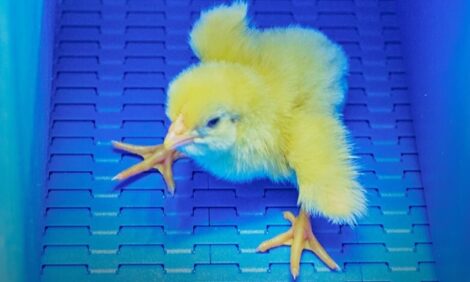



Pioneering project to bring regenerative, dual-purpose poultry to the UK
Project team have secured initial funding and are seeking project partners to fund, scale and bring further expertise to the projectPlanton Farm, co-founded by researcher Dr. Annie Rayner and farmer Clare Hill, is embarking on a pioneering project to explore the practicalities and sustainability of dual-purpose, pasture-raised poultry as an integrated enterprise for UK farms. The project team have secured initial funding and are seeking project partners to fund, scale and bring further expertise to the project.
The initiative has been awarded funding as part of DEFRA’s Farming Innovation Programme delivered in partnership with Innovate UK. The project is a collaboration with Dr. Elizabeth Rowe, a researcher with University of Reading and Mike Theodorou of Biosource Consulting, who also holds an Emeritus Chair at Harper Adams University and serves as Innovation Manager for the project.
Addressing sustainability challenges in the poultry industry
The UK population’s reliance on chicken as a protein source is substantial, with the average person consuming 25 kg (55 lbs.) of chicken meat and 200 eggs annually. However, the chicken and egg industries face significant sustainability challenges, including environmental impacts from soy-based feeds, local pollution from manure and welfare concerns linked to highly productive breeds.
At Planton Farm in Shropshire, Dr. Rayner and Hill have already introduced pasture-based laying hens and summer pasture broilers. This project aims to further investigate the viability of dual-purpose breeds—birds that can serve both as egg layers and meat producers. By bringing value to male layer chicks, which are typically culled, dual-purpose breeds offer a more ethical and sustainable approach to poultry farming.
Innovative research approach
The project will combine desk-based research with small-scale trials to explore key components of pasture poultry systems including:
- Feed Systems – Evaluating sustainable feed alternatives.
- Housing and Brooding Designs – Assessing practical, farm-friendly solutions.
- Breed Availability – Identifying suitable dual-purpose breeds for UK farms.
Chicks will be placed in the spring, with males processed for meat in the summer and hens beginning egg production around the same time. The research will monitor productivity, cost of production and egg and meat yields, while also assessing the impact on pasture health and biodiversity.
Creating a blueprint for regenerative poultry farming
“Our goal is to create a practical, scalable model for regenerative dual-purpose chicken farming that integrates seamlessly into existing UK farm systems,” said Dr. Rayner. “By addressing both environmental and ethical issues in poultry production, we hope to offer a more sustainable solution that benefits farmers, consumers and the planet.”
Scaling impact through collaboration
Building on the initial funding from DEFRA, Planton Farm is launching a funding consortium of food businesses to expand the scale and impact of the project.
This consortium and its complementary funding will bring valuable expertise, knowledge and reach to the project allowing for deeper exploration of key topics, and faster progress in answering the fundamental question: What does truly regenerative chicken farming look like in the UK?
Benefits for consortium funders
- Be part of a network of visionary businesses working towards a better future.
- Gain valuable insights to evolve your organisation in line with global challenges.
- Demonstrate your organisation’s support for innovative and disruptive solutions.
- Upskill your team with a deep understanding of regenerative agriculture.
“We’re excited to grow this project beyond its initial scope,” said Dr. Rayner. “The consortium will not only accelerate our research but also create a dynamic community of expert stakeholders committed to pioneering sustainable and regenerative poultry farming in the UK and beyond.”








